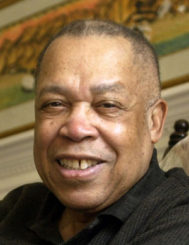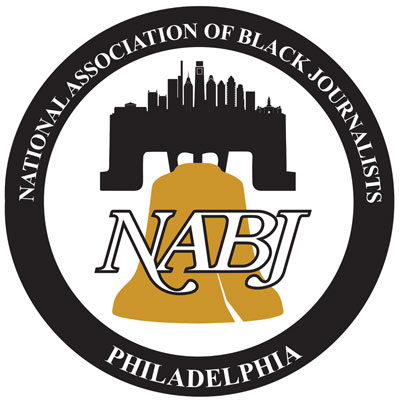ABJ & ITS CONNECTION TO FOUNDING OF NABJ

Paul Brock was the first executive director of NABJ. He was interviewed in 2017 by Sherry L. Howard.
______________________________________________
“Acel (Moore), Reggie (Bryant), Chuck (Stone) invited me to an (Association of Black Journalists) dinner. At the end of the dinner, Chuck, Acel, Reggie and I were talking. We were saying we probably needed a national group. I told them I was thinking the same thing.
Chuck just spoke up. ‘You’ve got time and you’ve got a group down in Washington (Brock was president of the Washington association, which was founded in 1975).’ At the time I had a group down in Washington with a similar name. We did newsmakers at the Democratic Club.
We were only inviting Black newsmakers, like the mayor of Gary, ID. They were monthly and they provided us news stories. At that time, the non-Black newspapers were just starting to hire Blacks.
Out of that grew a plan to start a national association. We knew we couldn’t just say we’re going to establish a national association. They would’ve killed all of us, fired all of us, dangerous times. Acel was having a rough time there at the Inquirer and Chuck was having a rough time there at the Daily News.
It took us all year to get that planned out so we didn’t leave any fingerprints on it.
We plotted. My people were fairly free. Maureen Bunyan & the others, they were both CBS network evening anchors. Max Robinson. I used a lot of their money to hold the luncheons and mail out notices.
Mal Johnson, who had been in Philadelphia one time but was down here working for (Cox Broadcasting Corp.). Mal had two jobs: She was to write stories. She also was to be the host for a lot of the newsmakers, so she would regularly hold Sunday luncheons at her apartment. They (Cox) paid for her to live at the Watergate at the time. She was doing pretty good for herself.
We set the date for the 12th of December and we were wondering how to mail out (invitations). Mailing it out, getting the word out to Black newspapers was not a problem, but for the few Blacks at white publications (it) was a problem. Because there would have been an uproar to fire those few reporters. Not at every paper; the Minneapolis Tribune was fairly liberal.
Eddie Williams (president of the Joint Center for Political and Economic Studies in Washington) was going to call the few elected Black officials together on the 12th of December – Eddie and I were very close – and I said can I use your name in inviting them (Black journalists) to come & cover it. All the time letting the actual people we were inviting know we were inviting them to try to start a national Black (organization).
We still have copies of the letter at the office. He said sure, not a problem.
So we decided to use that as the cover. That’s how we set the date. Eddie Williams was holding his meeting of Black elected officials coming to Washington. To this day I hear a few people say, ‘I didn’t know about it. I came to Washington because of the Black elected officials.’
Most of the Philadelphia chapter, Acel, we were putting it together, Maureen Bunyan, Max Robinson.
We had 43 people come to the meeting. Some of them thought they were actually coming to that (Black elected officials) meeting because that was what the letter said we sent out to them. If I knew somebody in Dayton, Ohio, I would send out that invitation on Max and Maureen’s money.
We set the date for the 12th (and) had a good turnout. Only one person from the New York Times came. The rest of the Blacks obeyed the massa. You had some in Philadelphia, too.
Chuck was elected president. (Did he serve as president of both organizations at the same time?) Yep. They were two separate organizations.
There were a lot of people who were in Philadelphia but did not come to Washington for the founding meeting of NABJ. That’s why we try to keep them separate.
There have been times when people say Philadelphia started (NABJ). No, Philadelphia did not start it. People who were in Philadelphia and people in the Washington group (started it). I used Philadelphia (bylaws) to write part of the constitution. We were not politicians. We were journalists and we knew we had to have a constitution to save time, to save work. I wrote it on my dining room table, actually.
(Undated copies of both the Philadelphia constitution/bylaws and the NABJ’s are among the personal papers of Acel Moore in the Charles L. Blockson Afro-American Collection at Temple University. The constitution and bylaws are almost identical except for a few areas.)
I laid out the draft (Alison Davis helped to navigate through writing the constitution). She was instrumental in getting the NABJ constitution worked out. Took us all day. All done on Dec. 12.
At the end we voted. Everybody here was a founding member of NABJ. (Chuck) was elected president that day. We elected Chuck to run the meeting that day. It was only natural.
They put my name up for vice president. Paul Delaney (at New York Times) was one of my closest friends and he said wait a minute, Paul is no longer a journalist and we’ve written only working journalists can be a member of the organization. (Brock was then news director at WHUR-FM at Howard University).
‘Working journalist,’ that was the key point we had argued over. A lot of people who came did a lot of other things during the day or wrote a Black column. They were not able to get in.
Paul spoke up, and he said by that rule Paul is not eligible to be in the organization. What are we going to do about it?
Chuck was arguing about making an exception and no, we’re not going to make an exception. Some people then came up with the idea, how about Paul will be the executive director, not a member but he’s the executive director. And that’s the way I was for about four or five years. I left NABJ to join Jesse’s (Jackson presidential) campaign.”
